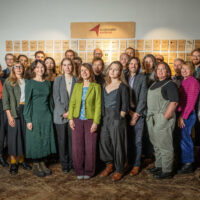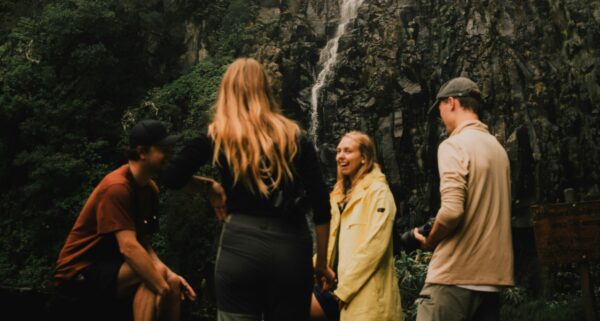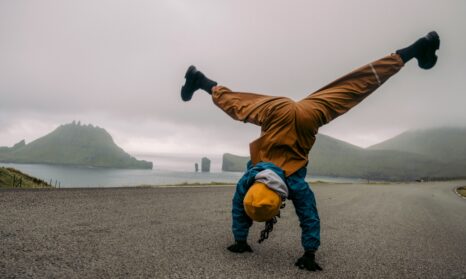Four brilliant ways to engage employees on sustainability
Clients are increasingly asking us how to engage their staff in sustainability, appreciating that, without staff buy-in, they won’t be able to achieve their targets – harming their reputation, their bottom line, and ultimately, the planet.
Gathered from our 15-plus years of experience in corporate sustainability, here are our top four strategies guaranteed to ensure continuous staff engagement.
1. Make sustainability everyone’s business
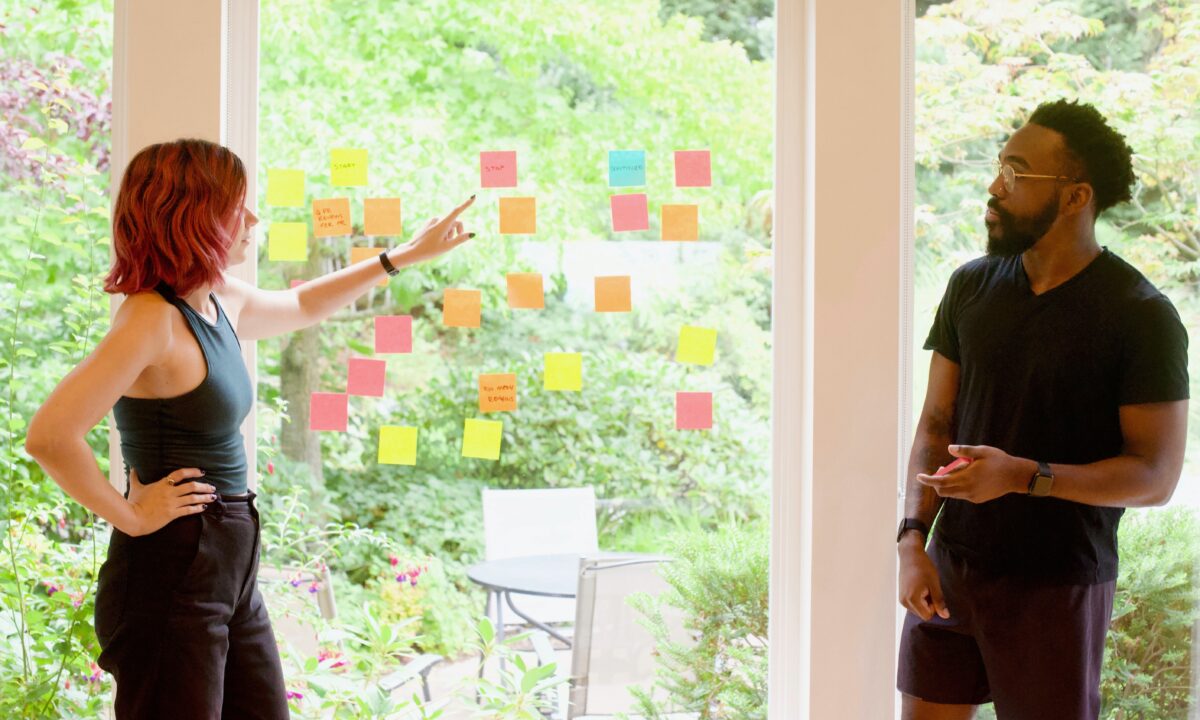
Crucially, we use workshops to create ownership – ownership of the problem and ownership of the solutions. It allows people to move from apathy to empowerment, to feel valued, heard, and part of something bigger.
When managed well, collaborative workshops can be the most effective way to win hearts and minds, and to gather a wide range of views.
The climate and ecological crisis, and its impact on society and individuals, is a systemic, global problem. This means that solutions must also be systemic, and implemented across organisations. When we work with businesses, what we’re aiming to do is to create ownership; to help people understand how corporate sustainability is inextricably linked with their role, and that their decisions at work will all have an environmental impact.
We do that first through exploration of the problem, and then by finding solutions – and here, ownership is key too.
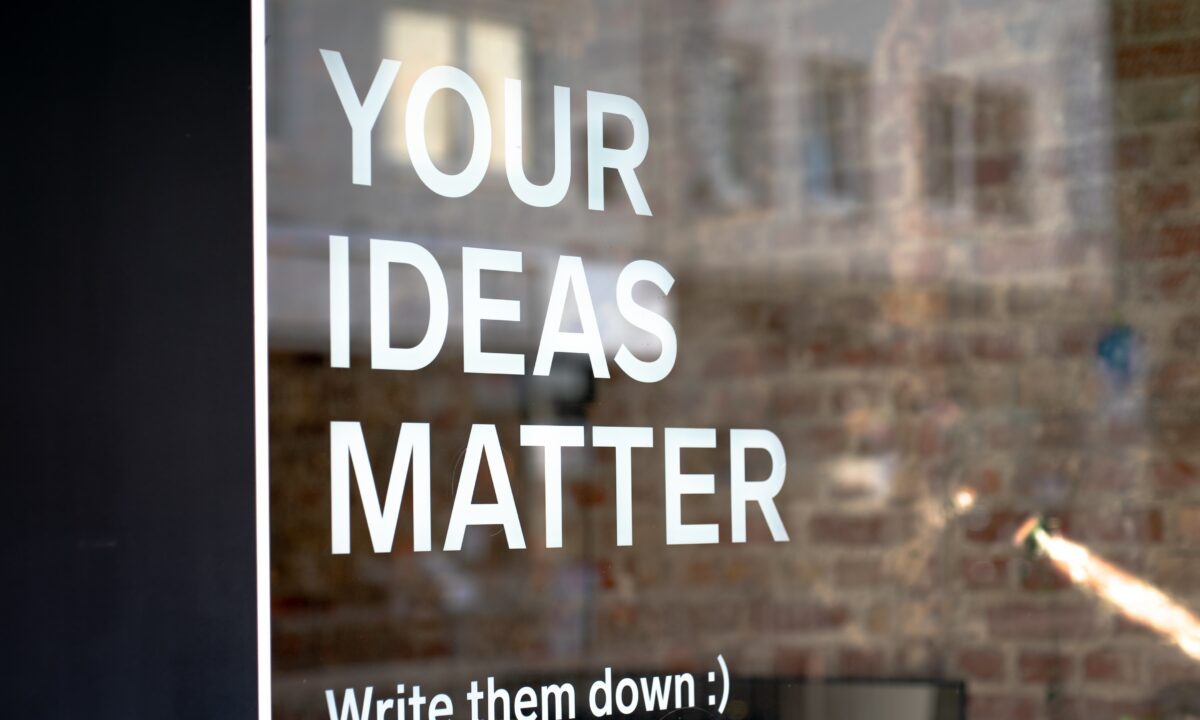
It’s simple human psychology that if people devise solutions themselves, they feel much greater ownership of the problem, and greater agency to solve it.
2. Engage at all levels to develop solutions
In all-too-many organisations, strategy is implemented from the top-down, and most team members just aren’t aware. There is a better way: operationalise your sustainability strategy at all levels of your organisation. After all, your colleagues know their roles and teams better than anyone else. They know what their clients or customers are asking for and what their suppliers can offer. And, of course, they’ll be the ones who need to make the (possibly significant) changes required to make your organisation’s vision a reality.
Getting to net-zero carbon, or reducing waste by 90%, isn’t something that the CEO and board can deliver. Every employee has a part to play in how their business reaches those targets.
It’s simple human psychology that if people devise solutions themselves, or even if they feel their ideas have been heard – they feel much greater ownership of the problem, and greater agency to solve it.
If you need support to create the strategy itself – you can learn more about our services here.
3. Recognise and reward your team
Developing a culture of recognition and reward is a great way to keep sustainability at the forefront of your employees’ minds. Recognition can reinforce positive behaviour and encourage a sustained commitment to sustainability. This could involve sustainability targets being set as part of a team’s KPIs, financial bonuses linked to sustainability, or even a simple acknowledgement system that highlights individuals or teams making a significant impact.
Related content:
4. Provide training and development opportunities
You must equip your employees with the knowledge and skills needed to contribute effectively to your sustainability initiatives. Offer training programs that are appropriate for each respective team or level – for example, focusing on sustainable practices, ESG leadership, the circular economy or what net-zero means for your sector. Investing in your employees' sustainability education not only enhances their professional development but also strengthens the overall capability of your organisation to be able to deliver its sustainability strategy. It is essential that businesses take steps now to futureproof their workforce and equip them for the transition to more sustainable ways of doing business.
How Bioregional can help
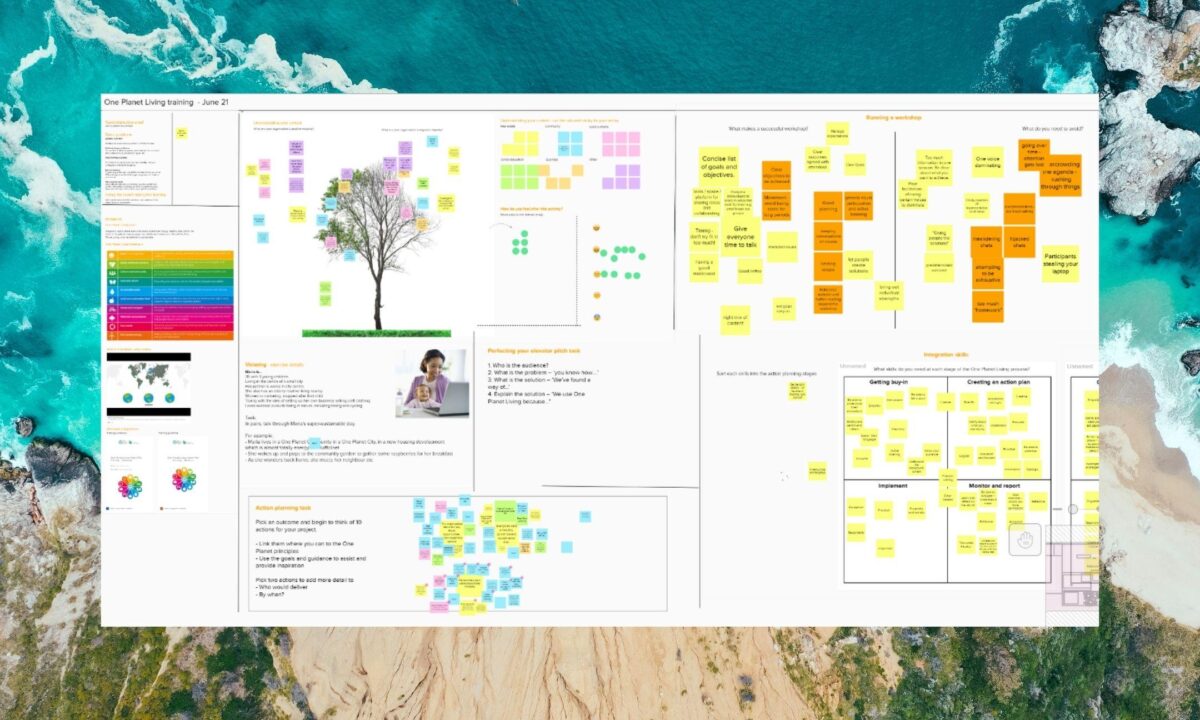
We create engaging workshops that ask a key question: what can you and you team do to achieve your organisation's sustainability aims? And of those ideas generated, which ones are you – personally – going to act on?
In one programme, we supported Northampton Partnership Homes to create an all-staff sustainability training course. We then ran four online workshops reaching 60 staff and generating over 150 actions (and yes, before you ask, we did use Post-it notes, albeit digital ones).
In another recent example, with global technology company ABB, we worked with a core group to deepen their understanding of the climate and ecological crisis. We spent some time considering the group-level targets before generating actions. Crucially, each delegate took one personal action to deliver themselves. We’ll be popping back in a few months to see how they got on.
Where clients request it, we structure workshops around our One Planet Living framework. This considers every aspect of social, economic, and environmental sustainability, and ensures nothing slips through the gaps. It also helps to set the ambition – after all, no one can argue with the proposition that we only have one planet and must live within its means.
This process of creating ownership instils a culture of sustainability that is fundamentally good for business; it reduces costs, boosts staff morale, and is attractive to customers too.
Get in touch below to discover more about our full range of staff engagement training modules, covering everything from sustainability fundamentals and carbon jargon to board engagement and deep dives into areas such as energy and waste.
Book a discovery call and we'll be happy to discuss how our training packages could be tailored to suit your business.
Image credits: Jason Goodman, Parabol and Mika Baumeister, all via Unsplash

